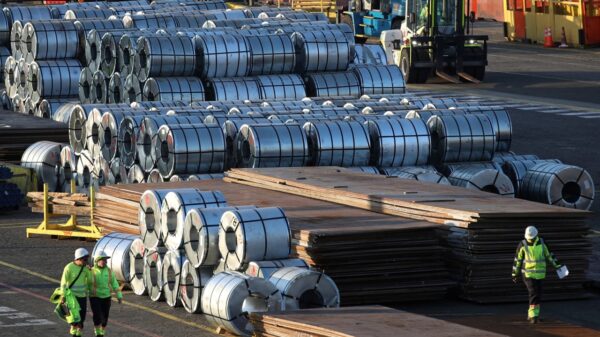A federal judge has ordered the cessation of expansion and the reduction of operations at a new migrant detention facility in Florida, widely referred to as “Alligator Alcatraz.” This ruling, delivered by U.S. District Judge Kathleen Williams on August 7, 2025, halts the state’s plans to increase the facility’s capacity and prevents the intake of additional detainees. The decision represents a significant turn in the ongoing legal dispute regarding Florida’s immigration policies.
Located at the Dade-Collier Training and Transition Airport in the Everglades, the facility was designed to accommodate up to 5,000 migrants in temporary tents secured by chain-link fencing. Since its opening last month, it has drawn sharp criticism from environmental advocates, Indigenous groups, and detainees themselves, who have raised concerns about the site’s impact on the ecosystem and living conditions.
In her comprehensive 82-page ruling, Judge Williams determined that the detention facility was inflicting “irreparable harm” to the fragile Everglades ecosystem and was endangering protected species. She noted that the state had not provided sufficient evidence to demonstrate that the project would not result in long-term environmental damage. Thus, she mandated the removal of several installations, including temporary fencing, generators, and waste systems, while banning any further construction at the site.
The court’s ruling also highlighted the concerns of the Miccosukee Tribe, who argued that the facility obstructed access to traditional lands. Judge Williams ordered the removal of the temporary fencing to restore tribal access, underscoring the intersection of environmental and Indigenous rights within the legal proceedings.
The legal saga began in June when a coalition of environmental organizations filed a lawsuit against the state, challenging the facility’s environmental review process. This lawsuit led to a temporary construction halt, which expired just before Williams issued her ruling. Detainees at the facility have also voiced their grievances, reporting inadequate living conditions, including malfunctioning air conditioning, pest infestations, and unsatisfactory meals.
Earlier this week, another federal judge, Rodolfo Ruiz, appointed by former President Trump, dismissed parts of a separate lawsuit that claimed detainees were denied access to legal counsel. While some aspects of that case were rejected, others remain active in the court.
The ruling poses a significant setback for the administration of Governor Ron DeSantis, which has been advocating for stringent state-level immigration enforcement. Just prior to the court’s decision, Homeland Security Secretary Kristi Noem had praised Alligator Alcatraz as a potential model for similar facilities across the nation.
As the state weighs its options regarding an appeal, the future of the Alligator Alcatraz facility remains uncertain. Environmental advocates and tribal leaders have celebrated the ruling as a victory, yet critical questions linger. These include the fate of the migrants currently housed at the site and whether alternative facilities will emerge in other locations.
For now, Florida’s largest immigration detention facility finds itself in a state of limbo, casting a shadow over the state’s aggressive immigration policies and their implications for both human rights and environmental preservation.







































































